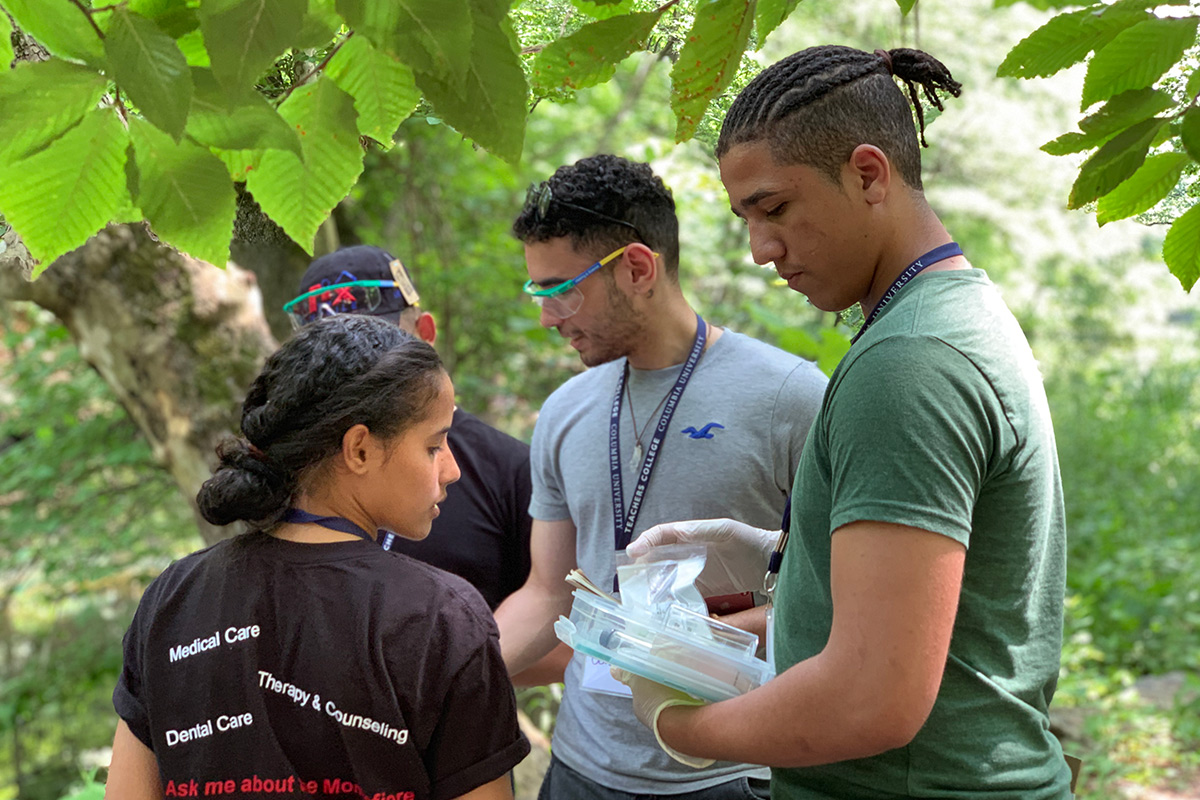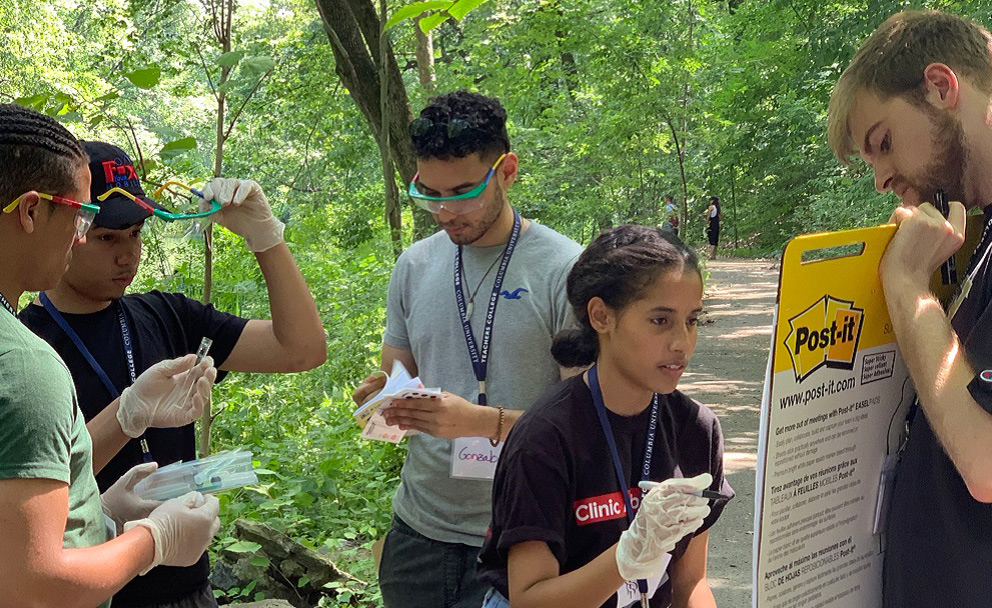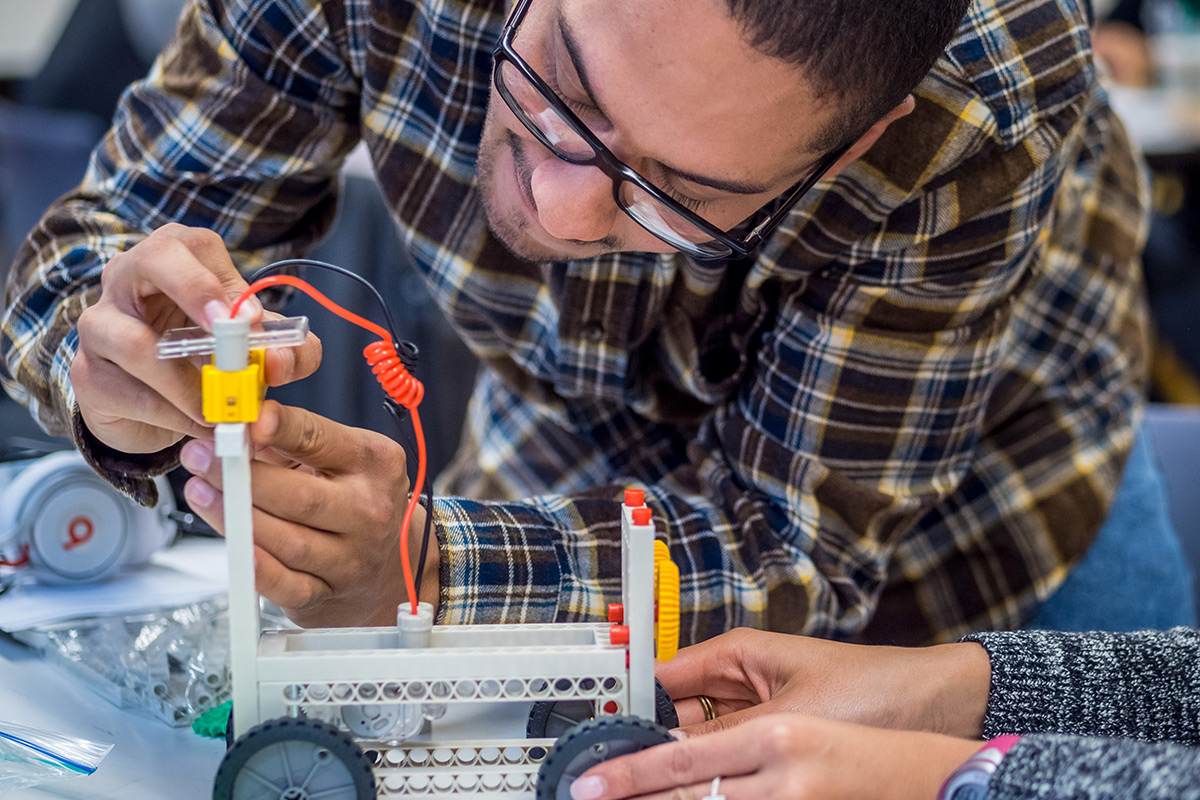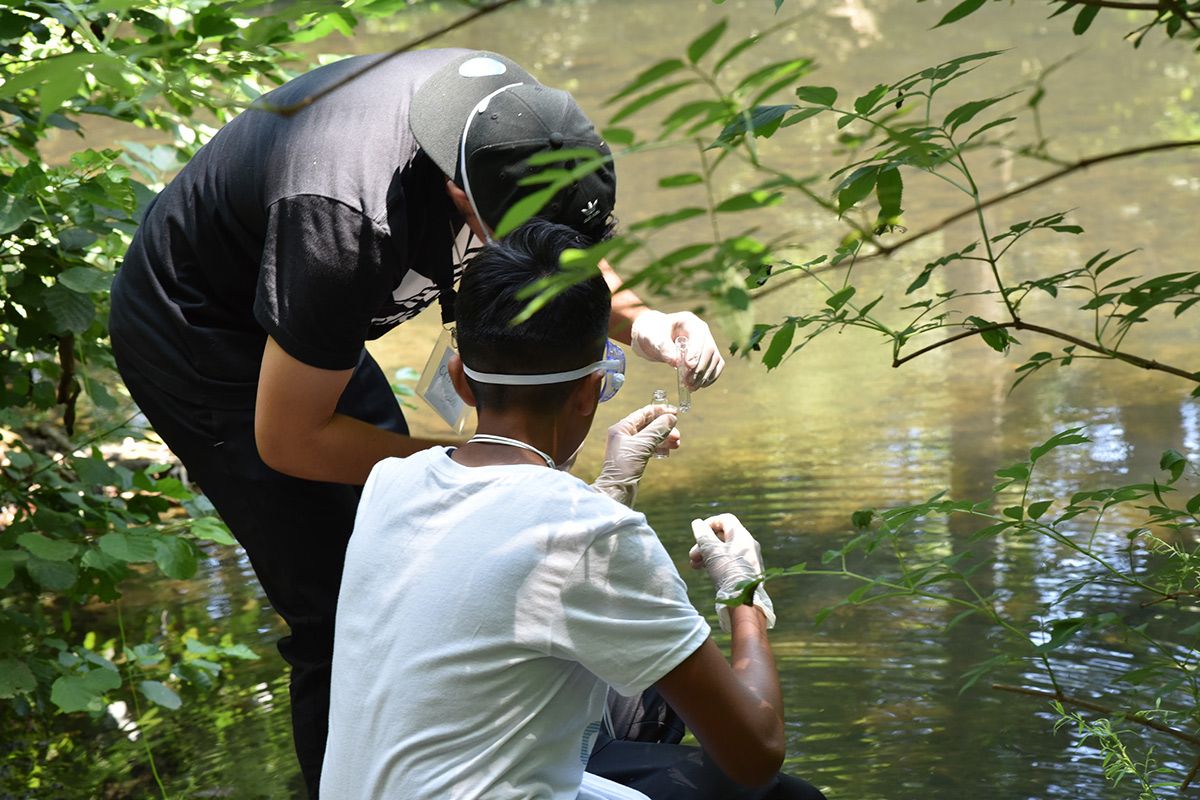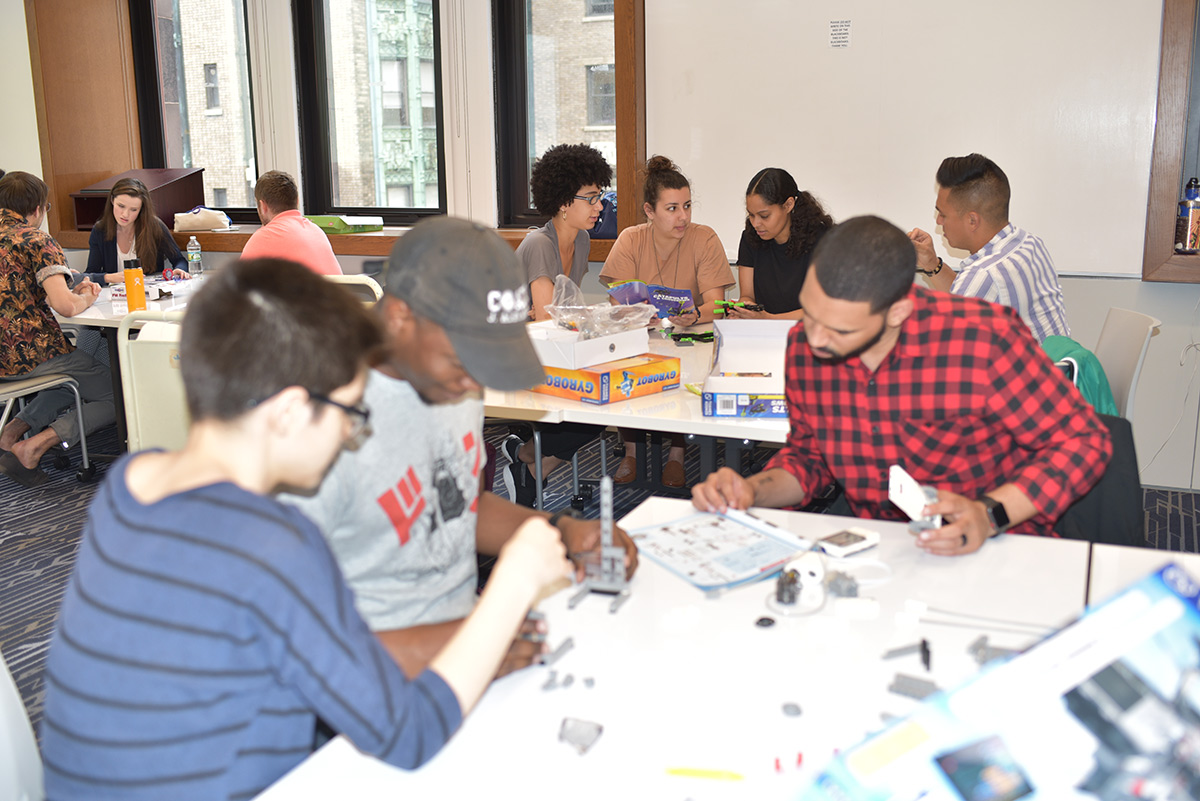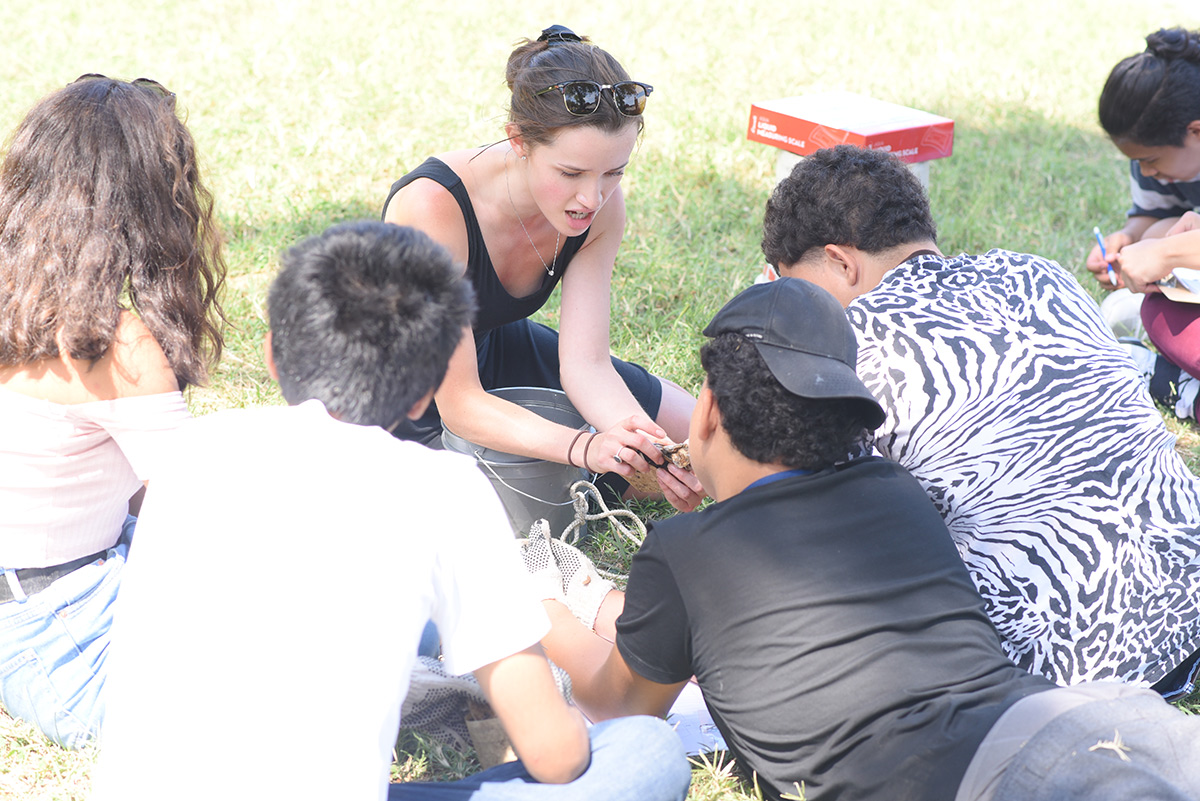Teachers College has won a third round of federal funding for TR@TC, its 18-month teaching residency program. The College has received a Teacher Quality Partnership (TQP) grant of $468,438 from the U.S. Department of Education for the coming year, with a projected total grant of $5,985,870 over the next five years contingent on continued federal funding and the ongoing success of the program.
The grant will fund 15 new residents this coming year, and 20 new residents annually for each of the next three years. Under the terms of the grant, Teachers College also will match the TQP funding.
[TR@TC prepares TESOL, special education, math, and science teachers to work in high-need New York City public schools through an intensive residency and mentorship program grounded in the Teachers College philosophy of inclusive education. Apply by November 8th and prepare to transform lives in New York City schools.]
The newest iteration of the program, TR@TC3 exponentially strengthens an already cutting-edge emphasis on simultaneously preparing teachers in specific content areas and to serve special education students and those who are English language learners.
“The dual certification of teachers with special ed and ESL is what teacher preparation needs to be doing,” said A. Lin Goodwin, TC’s Evenden Professor of Education and former Vice Dean, who created the TR@TC program and has secured funding for each new iteration. “The key here is teacher retention. We all know the attrition rates among new teachers and the desperate need for teachers with expertise in special education and English as a second language -- and for quality teachers in general. Our program has been extraordinarily successful in preparing teachers for New York City high-need schools, and the vast majority of our graduates continue to teach in New York City, in the same high-need schools where they learned to teach.
The dual certification of teachers with special ed and ESL is what teacher preparation needs to be doing. Our message from Day One has been that while certification is categorical, children are not.
—A. Lin Goodwin
“In great part, that’s because our message from Day One has been that while certification is categorical, children are not. So in our program, you can be a teacher in inclusive education but learn about ESL or science. It’s not that you’ll be the same as someone who deeply prepares in ESL, but you won’t be helpless when you face kids who are learning a new language, and you won’t have to abdicate your responsibility for them. You’ll also be better equipped to work with the specialists who work with them.”
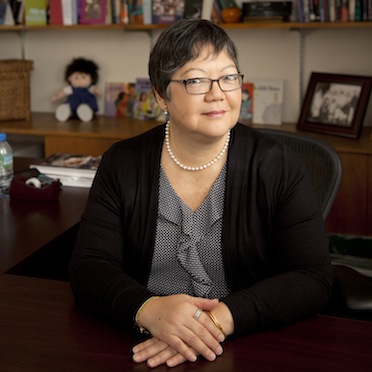
RESIDENT EXPERT A. Lin Goodwin, Evenden Professor, created the TR@TC program and has secured funding for each new iteration. (Photo: TC archives)
Through TR@TC, pre-service teachers receive a generous financial package to work in high-need schools (primarily secondary schools) under the supervision of an experienced mentor teacher. The program was first funded in 2009, when Teachers College was among the first 12 academic institutions to receive a TQP grant, and again in 2014. The program has graduated a total 132 residents to date, 114 of whom are still teaching (including 92 in New York City public schools) and 128 of whom remain in education-related fields (including school leadership and teacher preparation). Nationally, according to a 2018 study by researchers at the University of Pennsylvania Graduate School of Education, 44 percent of new teachers leave teaching within five years.
The key here is teacher retention. Our program has been extraordinarily successful in preparing teachers for New York City high-need schools, and the vast majority of our graduates continue to teach in New York City, in the same high-need schools where they learned to teach.
—A. Lin Goodwin
TR@TC3 is exploring other new changes as well.
Under new funding guidelines, the program will focus their school partnership with specific New York City Department of Education districts in the College’s neighboring communities -- District 5 (Harlem), District 6 (Washington Heights) – or that align with TC’s focus on various high-need populations, such as District 9 (parts of the South Bronx), District 79 (an alternative district that serves students under the age of 21) and the Eagle Academy Foundation, a network of public schools that prepares young men to be leaders in their communities.
We have teachers from our very first cohort who still come back, both for workshops related to their teaching and to act as mentors to current residents.
—Aimee Katembo
TR@TC3 will also collaborate with new university and community partners: Columbia University’s Fu Foundation School of Engineering and Applied Science, and the Bronx River Alliance, which works to protect, improve and restore the Bronx River corridor.
Meanwhile, TR@TC3 will extend and expand upon several of its initiatives. These include:
- Induction and ongoing support for graduates once they are out teaching in the field. “We have teachers from our very first cohort who still come back, both for workshops related to their teaching and to act as mentors to current residents,” says Aimee Katembo, Director of the Office of Teacher Education. “We anticipate that as teachers progress in their careers, they need to pursue opportunities for leadership within their departments or schools, and our programming responds to that need.”
- The Citizen Scientist Program, a three week, field-based program offered in July for residents, prospective teachers, high school students and educators from other nations in which the curriculum centers on the health of New York City’s waterways.
- The Pathways to Teaching Program, currently operated with the John Jay College of Criminal Justice, a senior college of the City University of New York. Pathways to Teaching enables undergraduates at John Jay who are considering teaching as a career to take an exploratory course (offered at John Jay, but taught by TC alumni) in the intersections of education and social justice.
TR@TC Co-Director Suzanne Pratt on the Citizen Scientist Program
As the TR@TC program changes with the times, its core model continues to receive validation. This past spring, New York City Comptroller Scott Stringer, who is gearing up for a mayoral run, issued a report, Teacher Residencies: Supporting the Next Generation of Teachers and Students, in which he specifically cited TR@TC as a model.
“That acknowledgement and the new round of funding affirm for us what we already knew – clearly we’re meeting a very important need,” Goodwin says.
